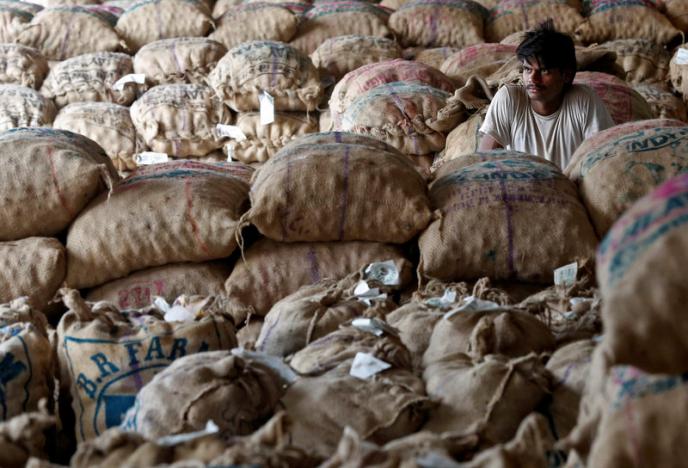Farmers fear lost crops and income after 'black money' move
- India scraps 86 pct of cash to fight corruption, boost tax
- Move hits farmers during sowing of winter crops
- Most of India's 263 million farmers live in cash economy
- Payment woes disrupt food transport, wholesale markets
BAJNA: For Indian farmer Buddha Singh, who works a small plot of land in the village of Bajna south of New Delhi, the government's decision to abolish 500 and 1,000 rupee bank notes to crush the shadow economy could hardly have come at a worse time.
He and millions of other farmers cannot get enough cash to buy the seeds and fertilisers they need for their winter crops, threatening production of key commodities and hurting rural communities only just recovering after two years of drought.
"We can't buy our full requirements of seeds, fertiliser and pesticides on credit. There is a limit," said Singh, a turbaned man in his 50s, who tills a two-acre field near the highway running from the capital to the holy city of Mathura.
"We're running out of time as we've only 10-15 days more to plant crops like wheat, mustard and chickpeas," he added, to murmurs of assent from around 30 fellow farmers sitting under a neem tree and discussing their predicament.
India's 263 million farmers mostly live in the cash economy, exposing them to the full impact of Prime Minister Narendra Modi's shock Nov. 8 announcement that larger denomination bank notes would immediately cease to be legal tender.
Modi's drive to purge "black cash" from the economy has, at a stroke, wiped out 86 percent of the money in circulation. Delays in printing new 500 and 2,000 rupee notes mean that money could be tight for weeks to come.
While city dwellers are still queuing up to exchange or deposit old money at the bank, and to draw new funds, many villagers live miles from the nearest branch and have yet to see the new notes being rushed into circulation.
THANKS, BUT NO THANKS
In the latest in a series of ad hoc steps, the government on Thursday allowed farmers to withdraw up to 25,000 rupees ($368) a week against their crop loans to ensure that sowing of winter crops "takes place properly".
Shaktikanta Das, a top finance ministry official, also said a time limit for farmers to pay crop insurance premiums had been extended by 15 days.
But that cuts little ice with farmers, who often rely for their cash not on banks but on money lenders charging annual interest of up to 40 percent.
"Most farmers have already availed of their farm loan for the previous summer season and, for the handful who can still withdraw, the ceiling is too low," said Tejinder Narang, a New-Delhi-based farm expert.
After selling their rice crop last month, many are stuck with old 500 and 1,000 bills they can no longer spend.
They are only allowed to exchange 2,000 rupees into new money, and the rest must be deposited before the notes cease to be accepted by banks after Dec. 30.
"Four banks cater to 200 villages of about 2,000 people each. It's not easy to get your old currency notes converted," said Harbir Singh, another local farmer.
MARKETS IDLED
The breakdown in the cash economy is causing major disruptions to the supply of produce to India's cities, with payment alternatives such as plastic cards or digital wallet apps on smartphones yet to gain widespread acceptance.
At Delhi's Azadpur Mandi, Asia's largest fruit and vegetable wholesale market, traders said business was at a virtual standstill, and labourers who usually earn between $4 and $6 a day sat idle.
"The bosses are giving us 500 rupee bills, but we are refusing to take those notes," said porter Raju Kumar Rathore. "Then they are telling us to collect our money after a week or 10 days. For us that is a big problem."



